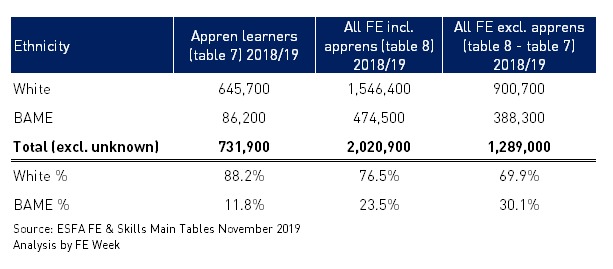End-point assessments for around 30 apprenticeship standards could be scrapped under new plans announced today.
The Institute for Apprenticeships and Technical Education said it is preparing to “simplify and strengthen” apprenticeships that have a “statutory regulator” and an “established professional competency test”.
It would mean that in situations where an apprentice has met a statutory regulator’s requirements to practice, this will be counted as that apprentice’s end-point assessment (EPA) in the future.
Currently, just 28 standards (see full list below) out of a possible 500 that are approved for delivery could be impacted, most of which are in the healthcare sector.
The move is likely to lead to making permanent some of the EPA flexibilities that were introduced as a result of Covid-19, particularly nursing.
In April, the institute announced that registered nurse degree apprentices and nursing associate apprentices who have been assessed by the Nursing and Midwifery Council as having permanently met the requirements for professional registration and have passed through gateway “will be regarded to have met the end-point assessment requirements and have achieved their apprenticeship”.
The IfATE explained that “statutory regulators” are those that admit professionals into occupations that parliament has said must be regulated. In such instances, entry into the profession can only occur when an individual is added to the regulator’s register.
Any statutory regulators delivering the integrated assessments will need to be admitted to the register of end point assessment organisations, held by the Education and Skills Funding Agency.
Tom Bewick, chief executive of the Federation of Awarding Bodies, warned that “we can’t allow those with a material interest in the outcome of an apprenticeship marking their own homework” if this move is implemented.
The IfATE said that going forward, it will be working with employers to consider how integrated assessment could be extended to other statutory regulators, but added that there will be “no blanket approach”.
“Integrated EPA will only be considered where a statutory regulator, which admits professionals into occupations that parliament has said must be regulated, sets established tests of professional competency,” a spokesperson added.
A consultation will take place on each standard this applies to before any change. Where the decision is taken to integrate the EPA with professional competency tests, there will be at least three months’ notice given to end-point assessment organisations.
The institute told end point assessment organisations for nursing and other relevant apprenticeships on 14 October that work will start on introducing the changes in the coming weeks.
Jennifer Coupland, chief executive of the IfATE, said: “This innovative new approach will build on lessons learned from the assessment flexibilities introduced around Covid-19. This will simplify the system and make it work better for both employers and apprentices, particularly in professions such as nursing.”
Bewick said: “Federation members were only briefed on these changes recently, so we think three months to implement the changes is unrealistic.
“We understand the need to avoid duplication in the assessment of apprentice competence. However, we also believe it is vital that a level regulatory playing field, from a quality assurance perspective, is maintained. It’s worth recalling the whole point of these reforms: to give greater public confidence in the quality of apprenticeships, which is why we can’t allow those with a material interest in the outcome of an apprenticeship marking their own homework.
“We can see how regulatory alignment between IfATE and statutory bodies is both pragmatic and sensible, but the timescales should be revisited.”
The apprenticeship standards affected:
Dental Technician
Clinical Dental Technician
Orthodontic Therapist
Dental Nurse
Optometrist
Pharmacy Technician
Arts Therapist (Degree)
Diagnostic Radiographer (Degree)
Dietitian (Degree)
Healthcare Science Practitioner (Degree)
Occupational Therapist (Degree)
Operating Department Practitioner (Degree)
Paramedic (Degree)
Physiotherapist (Degree)
Podiatrist (Degree)
Prosthetist and Orthotist (Degree)
Speech and Language Therapist (Degree)
Therapeutic Radiographer (Degree)
Hearing Aid Dispenser
Officer of the watch: boatmaster
Probation officer
District Nurse
Specialist Community Public Health Nurse
Midwife (Degree)
Registered Nurse – Degree (NMC 2010)
Registered Nurse Degree (NMC 2018)
Nursing Associate (NMC 2018)
Social worker

